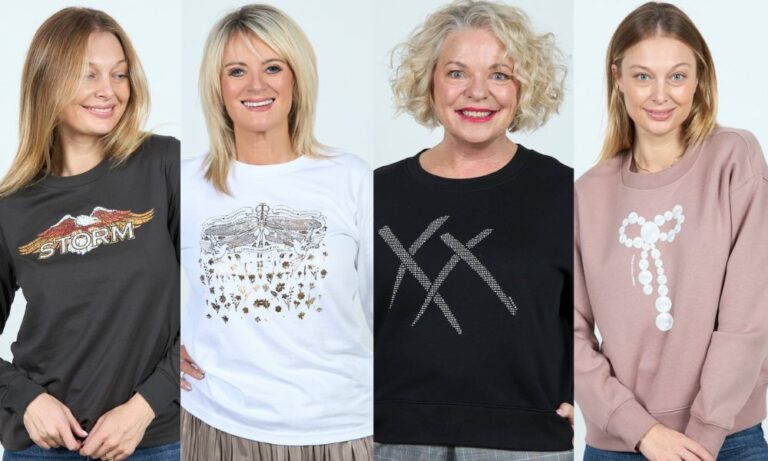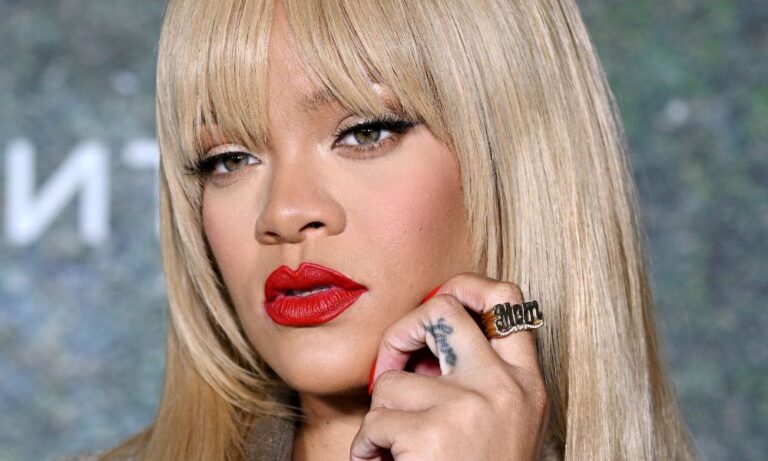While Instagram has it’s upsides, the social media network is taking its toll where body image is concerned.
It used to be a once-a-year drill. Summer would edge closer and closer and glossy magazine pages and websites would suddenly be plastered with “quick fixes” promising a “beach body” in just five days. Now, thanks to the rise of Instagram, we’re being served up unrealistic body ideals 24 hours a day, 365 days a year. It’s easy to close a magazine or click out of a website, but a growing number of us are checking out of reality and checking into Instagram an alarming number of times each day. In 2018, anyone armed with a smartphone can be a photographer, a model or a fitness expert.
“Whilst a strength of Instagram is that “anyone” can be either the photographer or the subject, this is also its weakness,” explains psychologist and director of BodyMatters Australasia, Sarah McMahon. Instead of being mere consumers of the unrealistic beauty standards mass media has perpetuated over the years, social media has meant we’re now not only conforming to these standards, we’re creating and enforcing them ourselves. “Instagram is saturated with images created by laypeople that largely replicate the images we see in glossy magazines and advertising,” explains McMahon. “Rather than being passive voyeurs of the constructed reality of media and advertising, we are now actively replicating images of ourselves to conform to these ideals.”
McMahon, who works with people experiencing eating, body image and exercise issues, says it’s a significant step backwards in terms of building positive body image and deconstructing the images we see. As a result body image disorders, particularly body image dysmorphia, are on the rise, believes McMahon. Body image dysmorphia, she explains, is when people become fixated with one or more body part and feel convinced it is defective.
And while McMahon says it’s a mental health issue which is becoming increasingly common, it’s not a new phenomenon. What is a new phenomenon however, is what McMahon says has unofficially been coined “Snapchat dysmorphia.”
Not so many years ago we could filter and narrate the stories about ourselves by simply tagging flattering photos and untagging the unflattering ones explains McMahon. “Now it is very common for people to use filters to change their appearance entirely.” And while it might seem harmless, McMahon believes its perpetuating our tendency to be critical of our own bodies. “We’re modifying the version of ourselves we show others, with a particular preoccupation towards an awareness of the parts of ourselves we consider defective.”
In fact, we’ve become so obsessed with our favourite Snapchat filters and apps such as FaceTune that we’re taking these edited images to appearance medicine clinics to edit out the bits we don’t like in real life. “Unfortunately this practice is now so common we hear reports of people taking images of their modified selves to plastic surgeons, expecting they will be able to “make permanent” the changes that can so quickly be achieved via social media filters,” says McMahon. “Even the best plastic surgeon will not be able to achieve this as these ideals are impossible.” McMahon says while modifying our appearance on social media may make us feel better initially, in the long run it’s ultimately contributing to body image issues. “We are becoming deeply aligned to these images. Further, we are promoting one narrow and homogenised beauty ideal that is largely unattainable to most, and sending a message not only that everyone does, but everyone should, look like that.”
THE (UN)WELLNESS WORLD
Not content with looking good, we also want to be seen doing what it takes to look good says McMahon. Nutritionist and founder of Feel Fresh Nutrition, Abbie O’Rourke, agrees and says health and nutrition have become an obsession for many. And although she says there’s definitely a positive side to this shift – vegetables and exercising are cool again – the wellness world comes with a sinister underbelly. “Back in the day you might go on a diet in private, but now we’re overwhelmed with information – people flaunt the fact they’re dieting,” she says. “You can see what someone down the street eats for dinner if they put it on Instagram.” What we don’t realise, says O’Rourke, is that women shouldn’t have to worry about losing weight their entire life.
Fad diets have always existed – lemon and cayenne pepper anyone? – but O’Rourke says social media has the power to peddle diets to the masses at an alarming rate. Often those promoting a certain way of life – #plantbased, #paleo, #8weekchallenge – aren’t qualified to do so. “Credibility and authority is given to social influencers – those who meet current beauty ideals (regardless of what practices they may actually engage in and what the science behind these practices is) and/or those who have lots of ‘followers’,” says McMahon. “The real tragedy occurs when the masses earnestly follow this advice, making them physically or psychologically unwell,” she adds.
Frequently the flood of misinformation that’s out there generates more confusion. “I work with smart young women and they all say they want to do the right things for their body but they’re so confused about what to eat,” says O’Rourke. She points to veganism and intermittent fasting as two diets she believes many adopt for the wrong reasons. “There are healthy ways of being a vegan and very unhealthy ways of being a vegan,” she explains. The same goes for ketogenic diets and fasting. “Ketogenic diets are liberating the body to use fat stores as a form of energy. But are you actually fasting in a controlled sense or are you actually starving yourself? It’s dangerous.” Part of her day to day is scrutinising why clients choose to adopt such ways of eating. “Do they have an underlying eating disorder? These trend-based diets can be a way of making restrictive eating acceptable.”
THE NEW UNOBTAINABLE NORM
The “ideal” body shape has always changed throughout the years but anyone with an Instagram account and even the slightest interest in wellness would have noticed a dramatic shift in what’s considered the perfect female form in the last couple of years. Kate Moss’s reign is well and truly over as skinny has been replaced with taut, toned and curvy in all the right places. “The current beauty ideal is a complete oxymoron and is physically impossible for most women to achieve,” argues McMahon. “This seems quite congruent with the expectations we have on women more generally: achieving the impossible tasks of home making, child rearing and professional success whilst simultaneously looking amazing.”
O’Rourke says while she is glad we’ve moved away from a super-skinny body ideal, we’ve gone too far in the opposite direction. “The amount of time and control it takes to have a body like Kate Moss is the exact same as having today’s body ideal,” she explains. “It’s not something that the average person can achieve. Your fitspo influencers are training multiple times a day. People who have full-time jobs, families, hobbies, things like that, it’s not that common to have abs!”
O’Rourke says while we’re seeing these picture-perfect lives and bodies on Instagram, we’re not seeing everything else that’s gone into a photo. “We’re essentially looking at a highly curated news feed,” she explains. “They’re showing pictures of them working out, them with abs, great butts and all that business, they’re celebrating that curved muscular physique.”
At the same time, we’re seeing the same influencers on holiday, drinking mimosas and eating smoothie bowls. “Some of us are genetically blessed but for most of us you can’t have your cake and eat it too. You can’t have this life that’s shown on Instagram and also have that unrealistic look.” The reality, says O’Rourke, is chasing an idealised body aesthetic isn’t all mimosas and five-star holidays. “There’s a social element that you have to sacrifice and with low body fat percentages you start dealing with things like infertility. I don’t think that level of restriction makes people overly happy.”
BETTER BODY IMAGE
Surely just accepting everyone is unique and loving your body no matter what shape or size is the solution. O’Rourke and McMahon both say don’t be so hasty – unfortunately the body positive movement in its current state doesn’t hold all the answers. “Body image and health are two very different things,” says O’Rourke. “The focus of body positivity movement so often emphasises a goal of feeling beautiful when we should be broadening the discussion away from that,” says McMahon. “Another example is the “health at every size” movement which is often mistaken for claiming everyone can be healthy at any size, rather than what it really advocates for, which is encouraging health-giving behaviour at every size,” she explains.
What we really need to do, according to O’Rourke, is remember that social media really is nothing more than a showreel. “It’s just not real,” she says. “We need to stop comparing ourselves to other people. We’ve all got different genetics, different lifestyles. We don’t think the same, we don’t all eat the same, workout the same and we shouldn’t all look the same.”
McMahon agrees and says we need to understand things usually aren’t as they seem on social media. “It may be simply a person’s life “highlights reel” but even then, it is most likely a highlights reel that has been carefully selected and curated to something that is most likely impossible.” To get to a place where we do truly accept our bodies McMahon says we need to reject the ideals that social media serves up. “Rather than presenting idealised versions of ourselves and shaping how we want people to see us, dare to be different, dare to be authentic, dare to be real.”
“Connecting back with our bodies, honouring how they feel and being self-compassionate are all a helpful starting place to learn to be content and happy with our bodies.”







